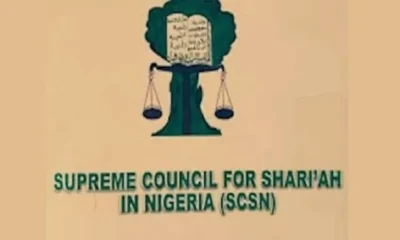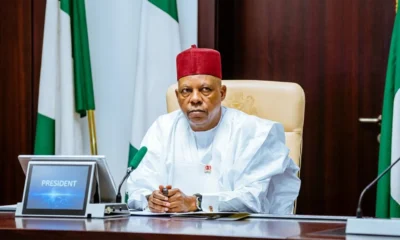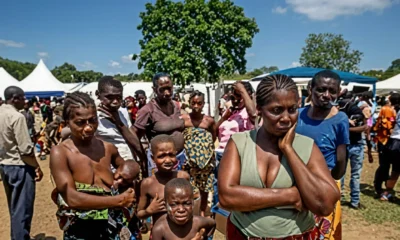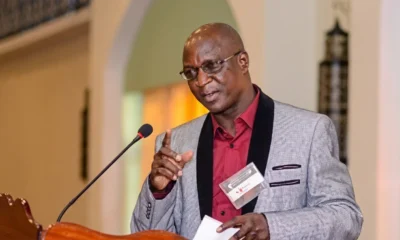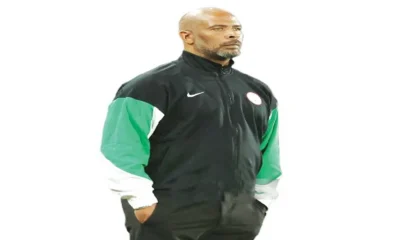News
Reps Reject US Claim Of Christian Genocide In Nigeria
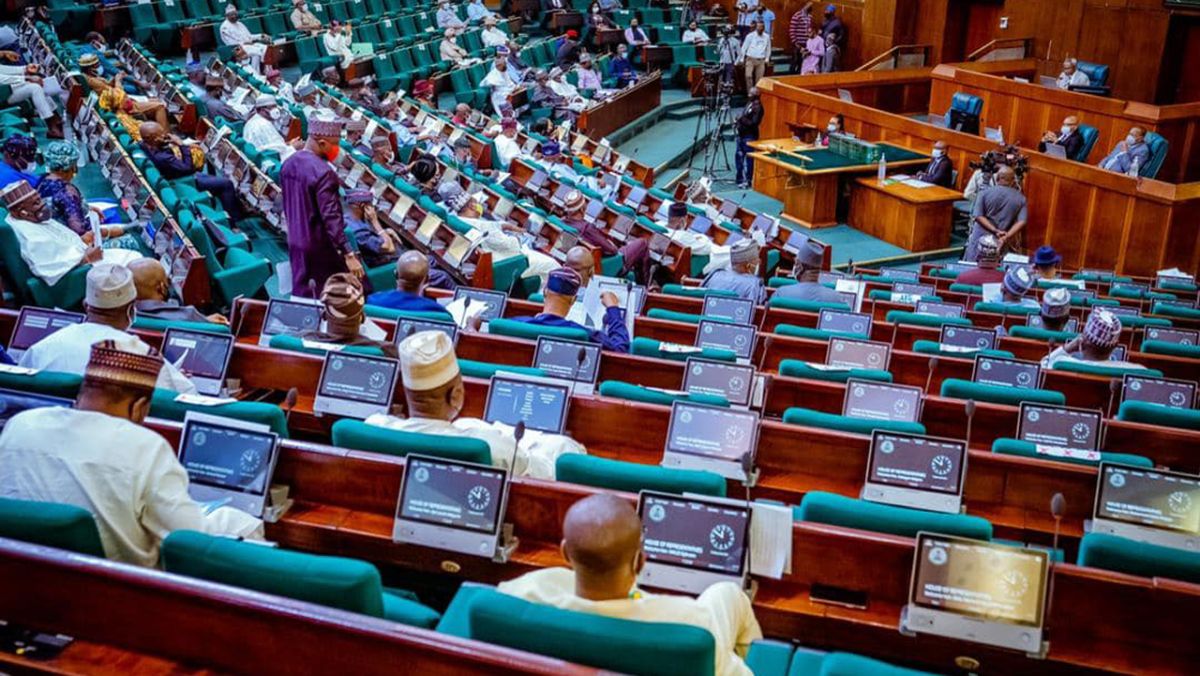
The House of Representatives has rejected the claim of religious persecution and genocide against Christians in Nigeria, describing it as a “misleading narrative.”
This is as the House has called for a coordinated diplomatic and domestic response to a proposed legislation in the United States Senate seeking to designate Nigeria as a “country of particular concern” over alleged violation of religious freedom.
The Green Chamber’s resolutions followed a motion by the deputy speaker, Benjamin Okezie Kalu, and several other lawmakers during plenary on Wednesday.
US Congressman, Sen. Ted Cruz, recently introduced a bill seeking to protect Christians in Nigeria from what he described as religious persecution and genocide.
He said, “Nigerian Christians are being targeted and executed for their faith by Islamist terrorist groups, and are being forced to submit to sharia law and blasphemy laws across Nigeria. It is long past time to impose real costs on the Nigerian officials who facilitate these activities and my Nigeria Religious Freedom Accountability Act uses new and existing tools to do exactly that. I urge my colleagues to advance this critical legislation expeditiously.”
President Bola Tinubu, the information minister, Mohammed Idris and several bodies in Nigeria had dismissed the claims of genocide against Christians in Nigeria, saying portraying Nigeria’s security challenges as a targeted campaign against a single religious group is a gross misrepresentation of reality.
Tinubu in Owerri, Imo State, recently, insisted that “no faith is under siege” in Nigeria.
Also, the Muslim Rights Concern (MURIC) said Muslims are also victims of attacks by terrorist groups.
Kalu, in his motion titled: “Urgent Need for a Coordinated Diplomatic and Domestic Response to the Proposed Nigeria Religious Freedom Accountability Act of 2025 (U.S. Senate Bill S.2747) and to Mischaracterisations of Nigeria’s Security and Religious-Freedom Landscape,” drew the attention of the House to what he described as a “misleading narrative” being advanced by the proposed U.S. legislation.
He noted that the bill, introduced in the U.S. Senate on September 9, 2025, seeks to mandate the American Secretary of State to designate Nigeria a “Country of Particular Concern” and to impose sanctions on Nigerian officials under Executive Order 13818, also known as the Global Magnitsky Act.
Kalu said the proposed law builds on earlier recommendations by the U.S. Commission on International Religious Freedom (USCIRF), which had repeatedly called for Nigeria’s designation on grounds of alleged state failure to protect religious minorities.
However, the Deputy Speaker stressed that such portrayals are inaccurate and fail to reflect the complexity of Nigeria’s security situation.
“Insecurity in Nigeria is driven by multiple factors — insurgency, criminal banditry, separatist violence, farmer-herder clashes and communal disputes — and affects citizens of all faiths,” Kalu said.
“It is misleading to attribute these challenges to state policy or to frame them as religious persecution,” he said.
He reminded the House that Nigeria’s Constitution guarantees freedom of religion and prohibits the adoption of any state religion, while successive administrations, security agencies, and civil society groups have worked to protect worshippers and prosecute offenders.
“We must not allow foreign mischaracterisations to distort our reality or undermine our strategic relations.
“Nigeria remains committed to religious tolerance, constitutional freedoms, and inclusive governance,” he said.
Contributing to the motion, various lawmakers expressed concerns over the implications of the US Congress’s move and urged swift action to address the incorrect narrative against Nigeria.
Majority Leader Julius Ihonvbere, in his contribution, called for swift diplomatic action to counter the U.S. narrative, warning that once the bill advances in the U.S. Senate, reversing it could be costly and time-consuming.
Oluwole Oke (PDP, Osun), on his part, described the U.S. claim as a “deliberate attempt to damage Nigeria’s image,” stressing the need for factual engagement with international partners.
Sada Soli (APC, Katsina) called for strengthened parliamentary diplomacy, noting that Nigeria’s strategic global role requires proactive engagement with U.S. lawmakers.
In his contribution, Hon. Billy Famous (APC, Edo) noted that Nigeria’s absence of key diplomatic envoys could weaken its response to such international challenges.
“As we speak, Nigeria has no ambassador to the United States and no permanent representative to the United Nations. Even if we investigate and issue reports here, the Americans will act only through recognized diplomatic channels.
“This is the time to urge Mr. President to immediately appoint an ambassador to the U.S. and a representative to the U.N. We also have to activate the Nigeria–U.S. Parliamentary Friendship Group and the Committee on Foreign Affairs to interface with our counterparts in the U.S. Congress,” he said.
He warned that if Nigeria failed to respond decisively, the U.S. bill could set a dangerous precedent for other African nations. “If we let this pass, Nigeria may just be the first of many African countries to be targeted. We are fighting not just for Nigeria but for Africa,” he added.
Adopting the motion, the House rejected the framing of Nigeria’s security challenges as a state-sponsored religious conflict, reaffirming that the country upholds constitutional protections for freedom of thought, conscience, and religion.
It mandated its committees on Foreign Affairs, National Security and Intelligence, Interior, Information, National Orientation and Values, Police Affairs, Civil Society, and Human Rights to, within 21 days, coordinate a formal diplomatic response to the bill through the Federal Ministry of Foreign Affairs and Nigeria’s Embassy in Washington, D.C.
The committees are to lodge a diplomatic protest (demarche) to the sponsors of the U.S. bill and relevant congressional committees, transmitting empirical data and Nigeria’s official position on the matter.
In addition, the lawmakers directed engagement with the U.S. Mission in Nigeria and interested U.S. legislators to propose a Nigeria-U.S. Joint Fact-finding and Dialogue Mechanism on Freedom of Religion or Belief (FoRB), involving faith leaders and independent experts.
The House also resolved to invite the US Commission on International Religious Freedom (USCIRF) to a briefing before its committees to examine the sources, methodology, and claims that informed its reports on Nigeria.
The Committee on Legislative Compliance was mandated to monitor the execution of these resolutions and report back within 28 days.
Furthermore, the House ordered that the resolution be transmitted to the Presidency, Federal Ministry of Foreign Affairs, security agencies, the U.S. Congress leadership, the U.S. Department of State, USCIRF, the African Union, and the ECOWAS Commission.
FG denounces US senator’s false claims
The Minister of Information and National Orientation, Mohammed Idris, has strongly denounced the recent comments by United States Senator Ted Cruz alleging genocide and targeted killings of Christians in Nigeria.
The minister, in a statement by his media aide, Rabiu Ibrahim, described the claims as false, misleading, and not reflective of the reality on the ground.
Responding specifically to the figures cited by Senator Cruz, Idris said: “This is not true. This is not the reflection of what is on the ground. I mean, it’s false where you say over 20,000 churches have been burned. It’s also false if you say 52,000 (Christians killed). Where did he get those numbers from? I think this is absolutely absurd. It’s not supported by any facts whatsoever. The Nigerian government rejects that.”
“No Nigerian officials will willingly, deliberately indulge in the act of siding with violent extremists to target any particular religion in this country. This is absolutely false.”
He reaffirmed Nigeria’s commitment to religious freedom and coexistence, saying, “Nigeria is a multi-faith country, meaning that it’s a country that has multiple religions. We have Christians, we have Muslims, and we even have those who don’t believe in any of these two religions.
“Nigeria is a very tolerant country. The government of Nigeria is committed to ensuring that there is religious freedom in this country.”
Protect all citizens – CAN
The Christian Association of Nigeria (CAN) has clarified its position on the ongoing debate over alleged “Christian genocide” in parts of the country, saying its concern is for government and security agencies to ensure equal protection for all citizens.
The association’s president, Archbishop Daniel Okoh, said in a statement on Wednesday that several Christian communities, especially in the North, have suffered severe attacks, loss of lives, and destruction of worship centres.
“We affirm, without hesitation, that many Christian communities in parts of Nigeria have suffered severe attacks, loss of life, and the destruction of places of worship.
“These realities are painful reminders of the urgent need for government and security agencies to act decisively to protect every citizen, regardless of region,” Okoh said.
He said CAN had consistently drawn national and international attention to the persecution of Christians in Nigeria, including petitions to the International Criminal Court (ICC) in The Hague and engagements with global Christian bodies such as the World Evangelical Alliance and the Lausanne Movement.
According to him, the association had also established mechanisms for recording incidents of religiously motivated killings as part of efforts to ensure justice and peace.
“Our concern remains that these cries for justice and protection are too often met with delay or denial. We therefore renew our call on government and security agencies to take urgent and equitable action to end the killings, safeguard vulnerable communities, and ensure that perpetrators face justice,” he said.
He acknowledged the efforts of government and security agencies in tackling insecurity but urged that such efforts be strengthened to guarantee fairness and transparency.
Okoh also appealed to Christian leaders to continue to act with wisdom and unity, saying peace is too fragile to be taken for granted.
“Nigeria’s healing will not come from denial or blame, but from courage, the courage to face our collective failures, to grieve together, and to rebuild trust,” he said. (Daily trust)
-

 News19 hours ago
News19 hours agoNo Power Can Stop Muslims From Practising Shariah – Shariah Council
-

 Sports11 hours ago
Sports11 hours agoUCL Round of 16: Osimhen to face Liverpool as Real Madrid, Man City renew rivalry
-

 Business16 hours ago
Business16 hours agoFG deepens CREDICORP, targets wider coverage, disbursements
-

 News16 hours ago
News16 hours agoOver 100 terrorists storm Benue villages, kill 150 – Witness tells court
-

 Business16 hours ago
Business16 hours agoBag Of Cement Climbs To N11,000
-

 News17 hours ago
News17 hours agoEFCC detains Ozekhome over ‘Tali Shani’ UK property affair
-

 News16 hours ago
News16 hours agoNorthern Christian leaders drop ‘CAN’ title, adopt old identity
-

 Sports19 hours ago
Sports19 hours agoChelle justifies $130k salary demand, denies exit threat



